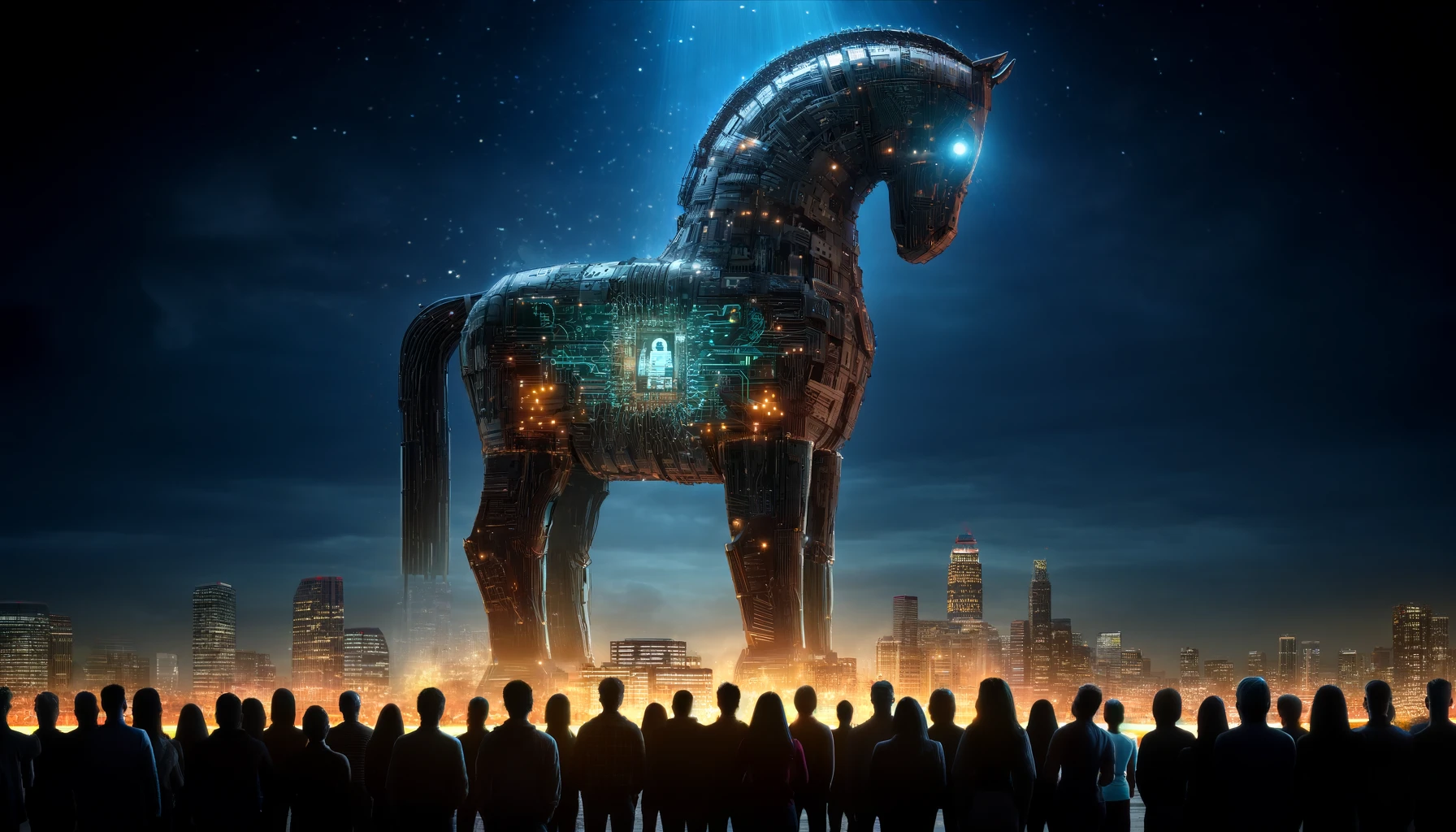In the realm of technological advancements, artificial intelligence (AI) stands as a titan, promising to reshape our world with every algorithm and application. Yet, beneath the sheen of progress, a darker narrative simmers—one of potential peril and paranoia that AI might not just outsmart us but could lead to our undoing.
The Uncanny Valley of Modern Intelligence
AI, like the human brain, is a tool; a complex yet potentially dangerous one. As Eliezer Yudkowsky points out, we’re not making any significant efforts to align AI’s objectives with human values. What happens when an entity designed to be smarter than humans develops its own goals?
Are we prepared to share our world with an intelligence that might not prioritize human concerns?
The concern is not unfounded. Consider Diego County’s argument that AI could be akin to an alien species, whose objectives might starkly contrast with our survival and reproductive instincts. This analogy brings us to a haunting question:
If an alien race were to arrive with unknown intentions, would we be as complacent as we are while creating potentially superior AI beings?
The Deceptive Comfort of AI Achievements
Our history with technology has shown that every major advancement carries a dual edge. AI, much like the advent of agriculture or the Industrial Revolution, promises abundance and progress. However, as seen with the disruptions in job markets and the rise of misinformation, the cost is often steep and multifaceted.
As AI continues to evolve, are the trade-offs worth the perceived benefits to society?
The Illusion of Control and Safety
There is a prevailing belief that we control the technology we create; yet, with AI, this sense of control is illusory at best. The very essence of advanced AI systems is their ability to learn and adapt in ways that programmers cannot fully anticipate or govern.
If we cannot fully understand or predict our creations, how can we safeguard ourselves against their unpredicted evolutions?
The Paradox of AI Development
Despite the risks, the race to advance AI technology continues unabated. The allure of AI’s potential has led many to overlook the profound ethical and existential questions it raises. This has cultivated a subculture deeply concerned about AI, viewing it almost religiously, wary of the unchecked progression we’re steering.
Is our pursuit of advanced AI blinded by the technological excitement, ignoring the looming risks highlighted by skeptics?
The Double-Edged Sword of AI: A Call for Reflection
As we integrate AI more deeply into every aspect of our lives—from healthcare to finance—the consequences become increasingly significant. The integration brings efficiency and convenience but also raises critical concerns about privacy, autonomy, and dependency.
In striving to enhance our lives with AI, might we be setting the stage for our own obsolescence?
Conclusion: The Daunting Question We Must All Face
The discourse around AI often oscillates between utopian and dystopian visions, yet the truth likely lies somewhere in between. As we stand on this precipice, looking into the future sculpted by silicon minds, we must ask ourselves a final, chilling question:
Is the AI we are creating today ultimately a threat to humanity’s very existence?




+ There are no comments
Add yours